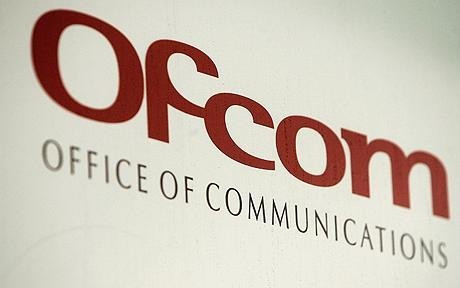Ofcom 4G Auction Falls £1bn Short of Estimate [VIDEO]
Ofcom has announced the winners of the 4G mobile broadband auction, with Vodafone, O2, Three, EE and BT all claiming some 4G spectrum but the auction raised £1.2bn less than the government had hoped for.

The £2.34bn total falls some way short of the government's estimate of £3.5bn, which itself is much less than the £22bn raised in an auction for 3G spectrum in 2000.
Ofcom expects 4G networks to be rolled out by this spring or early summer, as major players like O2, Vodafone and Three all play catch up to EE, which launch the UK's first 4G network at the end of October.
The auction saw 28 lots of spectrum go under the hammer with Ofcom saying it went through more than 50 rounds of bidding, and a total of 250 MHz of spectrum was auctioned in two separate bands in 800 MHz and 2.6 GHz.
Ed Richards, Ofcom chief executive, said: "This is a positive outcome for competition in the UK, which will lead to faster and more widespread mobile broadband, and substantial benefits for consumers and businesses across the country. We are confident that the UK will be among the most competitive markets in the world for 4G services."
The UK has the highest penetration of smartphones in the world (61 percent according to Kantar WorldPanel figures) yet it trails countries like the UK, south Korea and Germany when it comes to 4G networks.
"4G coverage will extend far beyond that of existing 3G services, covering 98 percent of the UK population indoors - and even more when outdoors - which is good news for parts of the country currently underserved by mobile broadband," Ricjards added.
Winner
On initial viewing Vodafone seems to have been the big winner, securing fvie lots in both the 800MHz and 2.6GHz spectrums, paying £790 million in total. EE paid the next highest amount, £590m, for four lots, again securing spectrum in both the 800MHz and 2.6GHz bands.
The 800MHz spectrum is suitable for wide geographical spread, needing less network masts and will help connect rural areas, while the 2.6GHz band will offer faster speeds in built-up areas.
O2, through its parent company Telefonica, failed to secure any spectrum in the 2.6GHz band, paying £550m for the two lots of 800MHz spectrum. This could lead to problems for the company in urban areas as it may not be able to deliver the bandwidth necessary for large amounts of data.
As part of the conditions on O2's bid, it must ensure that mobile broadband is available indoors to at least 98 percent of the UK population and at least 95 percent of the population of each UK nation - England, Northern Ireland, Scotland and Wales - by the end of 2017 at the latest.
The network is also expected to cover 99 percent of the population.
Like O2, Hutchison 3G UK, which operates the Three network, secured two ots of the 800MHz spectrum and no 2.6GHz spectrum, paying just £225m. The final successful bidder was BT, which paid £186m which managed to secure both 800MHz and 2.6GHz specturm.
Outstanding
The winning bidders now have until 23:59 on 21 February to pay any outstanding sums to Ofcom for the spectrum they have won, and all proceeds will go to the government.
After that, the final stage of the 4G auction process can begin, and that will determine where in the 800MHz and 2.6GHz bands each winning bidder's new spectrum will be located. Bidding in this stage, called the 'assignment stage' will take place shortly, according to Ofcom.
Following this, and when payment has been made in full, Ofcom will grant licences to the winners, allowing them to use the 4G spectrum. Operators will then be able to offer 4G to consumers, something Ofcom expects to happen in the spring or early summer of this year.
Towards the end of 2013, Ofcom will carry out research to measure the performance of 3G and 4G networks; this will access the average broadband speed on each network and will be used to help consumers understand the performance benefits of 4G over 3G, so they can make an informed decision on purchasing a 4G handset.
Looking ahead, Ofcom expects mobile internet use to increase by up to 80 times by 2020, and so is already planning to support the release of further spectrum for possible 5G services.
© Copyright IBTimes 2025. All rights reserved.






















